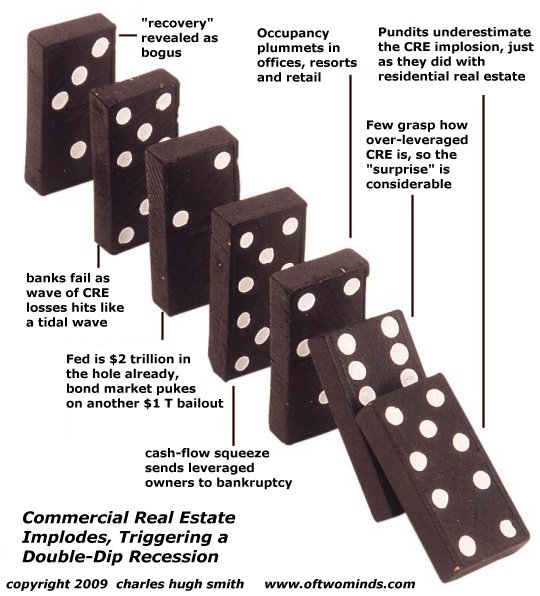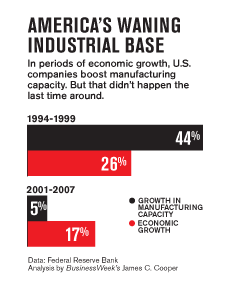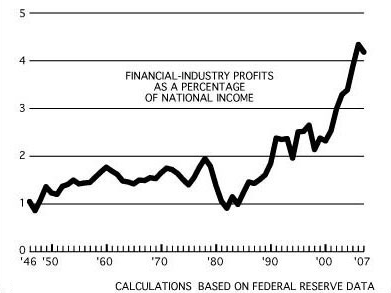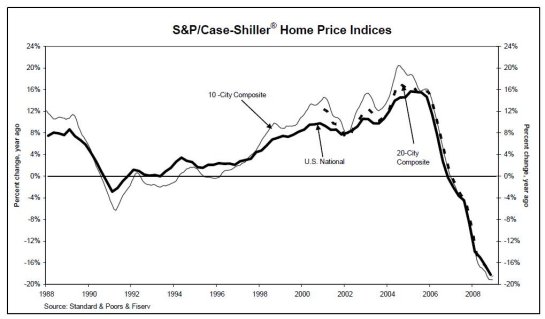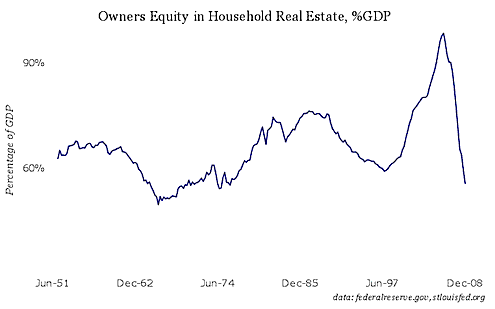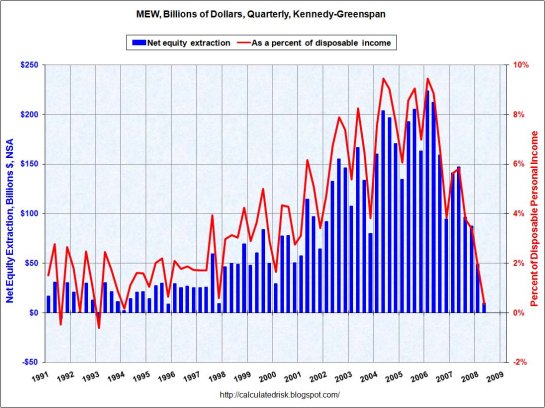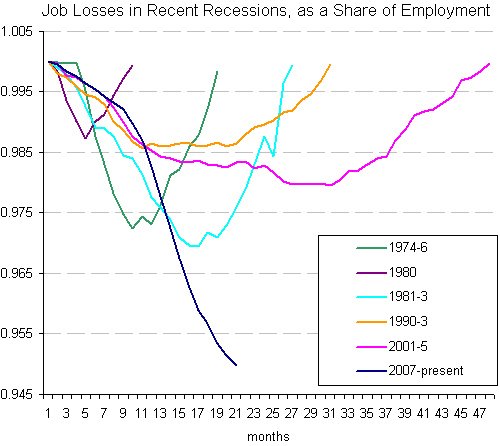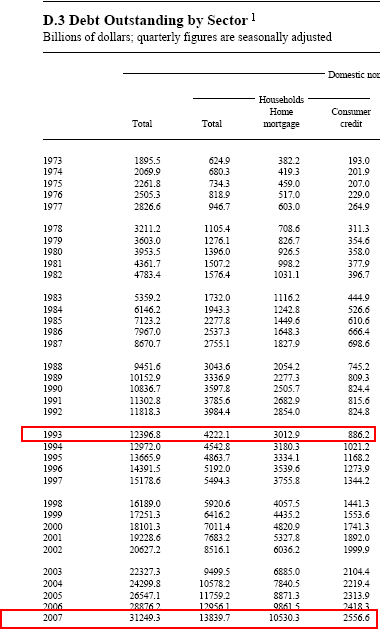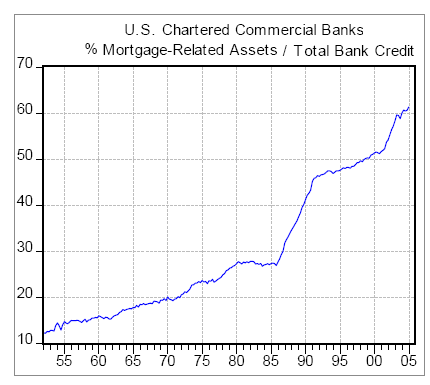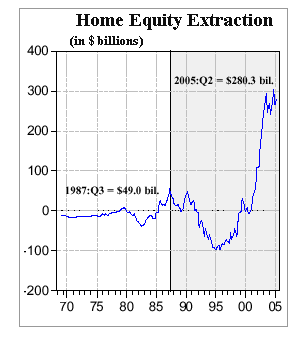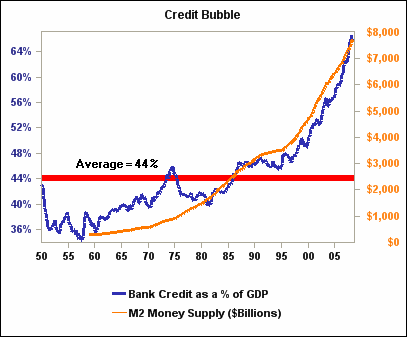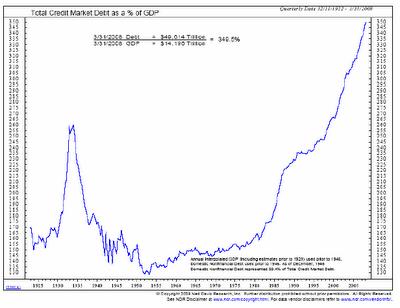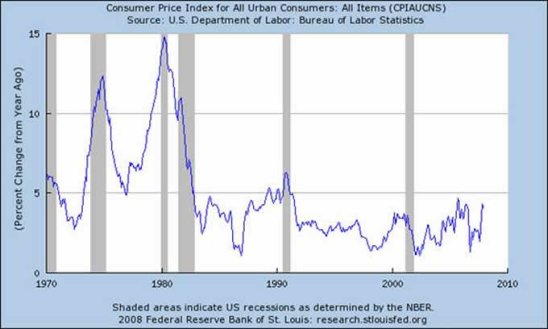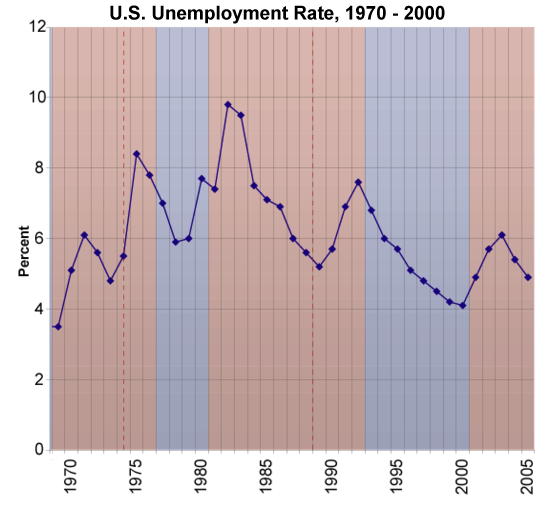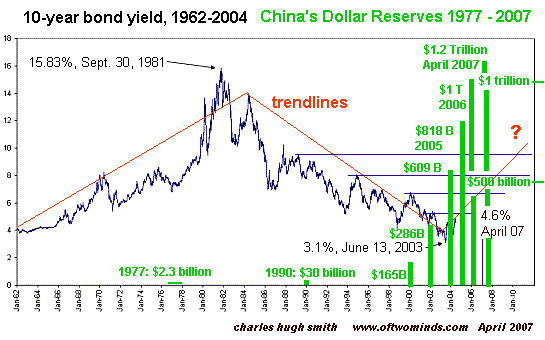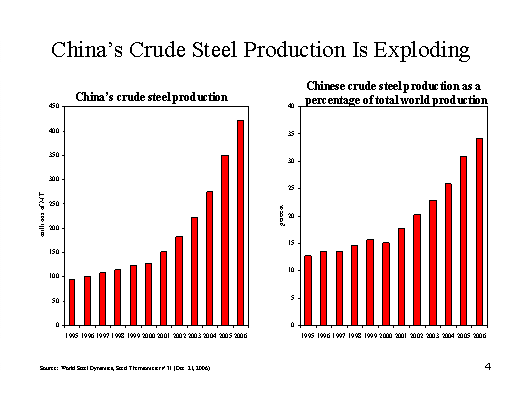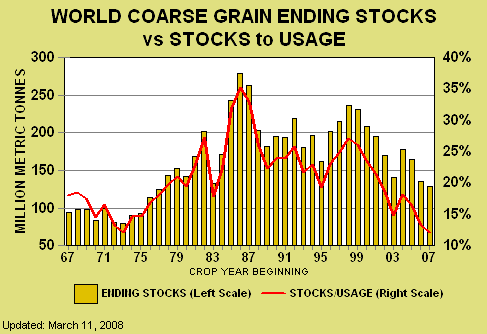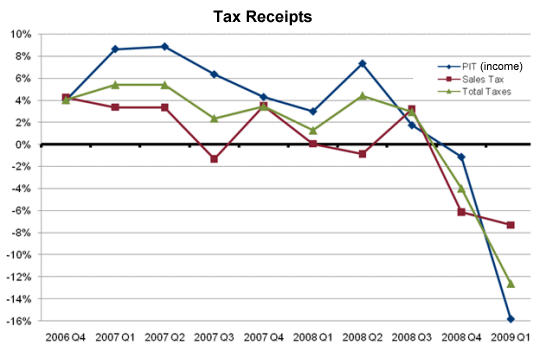The Grand Failure of Government to Limit Concentration of Power
News flash: My interview with Richard Metzger at Dangerous Minds is now available for viewing. (And yes, I know I look old...give a 55-year old a break!) From Dubai to the U.S. healthcare "reform" debate, a key context is the State's Grand Failure to limit the concentrations of power which then twist all State policies to meet the demands of self-serving Elites. While much is made of the "balance of powers" in the U.S. and other democracies--the power of the executive branch being offset by the legislative and judicial branches--this "balance" completely failed to hinder the credit/housing bubble and the structural fraud and embezzlement at its heart. No branch of the "balanced powers of the State" saw any reason to interfere with the systemic looting and debauchery of credit and currency. We should also note that in previous periods of extreme concentrations of wealth and high inequality, the "balanced powers" of the U.S. government did not reverse or even seriously challenge these long periods of high inequality. In this sense we should be careful not to overestimate the State's control over wealth concentration and rising inequality. Despite the supposedly "leveling influence" of income taxes, wealth has become ever more concentrated in the past 40 years, paralleling the high inequality between the Civil War and the Great Depression. Neither the "trust-busting" actions of the Federal government in the early 1900s nor the rise of industrial unions reversed or disrupted the 1860-1930 period of high wealth concentration/high inequality. This, then, is the grand failure of government: due to the concentrations of power accumulated by those with asymmetric stakes in the game, any attempt to limit a concentration of power is thwarted by status quo. All the issues which so worried Madison in The Federalist Papers have come to full flower: the power of the State has been legally channeled into Elites which have nothing to fear from any branch of the State because they are the State. Despite decades of attempted electoral "reform," elections in the U.S. grow ever more prohibitively expensive, and it is still legal to contribute large sums of money to politicians. The cliche has it that "money is the mothers' milk of politics" and as has been noted above, it is far cheaper to buy a legislative loophole than it is to pay taxes, build treatment plants, relinquish monopoly, etc. These concentrations of financial and thus political power flow ontologically from the concentrations of capital and labor that were necessary to industrial production. The model of a "factory" mass-producing goods, so successful in manufacture, has been applied, consciously or unconsciously, to fields of endeavor which are structurally quite different from manufacture--education, for instance, with the mixed results one would expect of misapplied models. The human mind's power comes from understanding models and applying them to new situations. In the long view, it is understandable that just as Newtonian physics sparked a frenzy of misapplied models (the human being understood as a mechanical device like a clock, etc.), so too would the highly successful model of concentrated mass-production be earnestly and enthusiastically misapplied. This concentration of materials, machinery, transport, labor and capital--the factory and the industrial corporation--naturally led to a concentration of organized labor, a model which, now that industrial production has faded, has been misapplied to the last outsized concentration of labor: government. With no real restraints on government largesse, then public-union labor has concentrated its political power and "won" (I use quotation marks because there has never been any real negative feedback to its concentration of power) stupendous benefits and wages which have created the "upper-caste" I have described above: a protected class of technocrats/apparatchiks who are compensated at two or three times (when pension and healthcare benefits are included) the market rates earned by their lower-caste private-sector brethren. Once financial and political power has become concentrated into monopoly-capital cartels and State fiefdoms, then those Elites hold highly asymmetric stakes in the game: they have so much more to gain and lose from the political distribution of taxes and exemptions from regulation than non-Elites that they will fiercely deploy all their power and wealth to preserve and extend their share of the national income. In contrast, the non-Elite citizenry have vanishingly modest stakes in the regulatory and tax-distribution games; while a narrowly focused tax law will enrich an Elite for decades to come, the consequences to the broad non-Elite citizenry are so diffused as to be akin to the brush of a feather. Immense State/Elite empires have been constructed from initially modest taxes collected from tens of millions of non-Elites--Medicare, for example--while seemingly minor tax laws have enabled vast empires of private capital to solidify. For example, energy, where fortunes have been built on depletion allowances and other tax schemes far more favorable than those awarded to manufacturers, and real estate, where depreciation hides vast rivers of income behind the perverse idea that a building rising in real value is magically declining in worth. From its humble tax-funded beginnings, Medicare has grown into a stupendously profitable empire which will soon exceed both the military-intelligence complex (the Pentagon) and the Social Security system in budget. This vast empire is comprised of loosely allied fiefdoms (the A.M.A.,trial lawyers, pharmaceutical, insurance and hospital industries, etc.), each eager to defend its turf from non-Elite interference and the encroachment of the other fiefdoms. The State's technocrats/apparatchiks have gained income and power along with their private-sector partners, and thus rather than provide a negative feedback counterforce to this concentration of wealth and income, the State is in effect a positive feedback, furthering the concentration of wealth and power into Elite hands. State Monopolies: Violence, Conscription, Taxation and Inflation The State itself of course holds monopolies on a handful of powers that are concentrated indeed: the dispensation of "legitimate" violence, the power to conscript citizens to fight wars (legally declared or otherwise), the power to tax the citizenry and lastly, the terrible power to rob the citizenry by means of inflation and/or currency devaluation, what I term theft by other means. Economist John Maynard Keynes quipped, "By a continuing process of inflation, government can confiscate, secretly and unobserved, an important part of the wealth of their citizens." This is theft by other means. Why does the State seek to steal its citizens' wealth via inflation? The politics of inflation dictate it: 1. Politicians need to distribute swag ("free money") to the electorate every two years. Their perspective is thus necessarily short-term as no politician dares care what transpires a decade or two hence. As a result, politicians must favor inflation, which enables them to borrow/print money and distribute it as swag to voters and Elites ("special interests") in the present and pay interest on the new debt with "cheaper" future dollars. 2. Voters possess the built-in human bias for present gain over future gain. Thus future insolvency is meaningless to those demanding State largesse in the present. Indeed, politicians have noted that those who demand sacrifice in the present to address a long-term crisis lose elections while those who distribute swag while ignoring the gathering storm on the horizon win elections. 3. Inflation is thus "good" for politicians and the State as it enables paying off obligations assumed in the present with devalued future currency. But is it "good" for the voters who actually earn income? Is a policy which robs a third of your money every decade a worthy policy? For that is precisely what "low" inflation of 2.5-3% annually does: it reduces your dollars' values by a third every decade. Will the swag "given" to you (is it "given" when it's your own future earnings?) now in the form of government benefits and tax cuts add up to more than a third of your future earnings over a decade? Unlikely, to say the least. 4. So politicians exploit the human bias for short-term gain even as they rob the taxpayers via inflation over the long term. Inflation is tolerable as long as you're a wage earner and your income rises at the same rate as inflation. But income from labor (wages/salaries) have been flat since the early 70s for most Americans, and so inflation has only been "good" for those holding assets which have risen more or less in lockstep with inflation. For those whose earnings rise nominally by 15% a decade while inflation robs 30% of their purchasing power, then "a little inflation" is a long-term disaster. 5. The usual argument in favor of inflation is debt-based. That is, inflation is wonderful because it enable us to pay off our debts with future "cheaper" dollars. But if our incomes are being robbed by inflation, then is that "benefit" of inflation really so valuable? If I lose a third of my purchasing power in a decade does being able to pay down my mortgage with depreciated dollars offset my loss of purchasing power? No--unless my mortgage payment exceeds my income by a fair margin, which is essentially impossible. 6. Deflation is excellent for those with cash and earnings and awful for kleptocracy governments and those with over-leveraged debt. The entire idea that "inflation is good" masks a perverse incentive: take on as much debt as you possibly can because interest will become "cheaper" to pay in the future (assuming your earnings keep up with inflation). If your earnings don't keep up with inflation, well, too bad. 7. The government's "earnings" are tax revenues. As profits and incomes have fallen, so have tax revenues. So as the purchasing power of its taxpayers' wages are stolen via inflation--"theft by other means"--then the State's ability to collect ever-larger sums of money via taxes is crimped. Unless, of course, the government can create asset bubbles via loose credit and unlimited liquidity which then generate huge capital gains which can then be taxed. 8. To enable distribution of swag to voters and Elites, the State kleptocracy offloads the payments into the future. By creating inflation then the State guarantees (or so it reckons) that it will be able to pay the interest on that debt with "cheaper" money collected from taxpayers in the future. But as taxpayers find the purchasing power of their earnings declining (theft by other means) then they respond to the incentives presented by the government: borrow to the hilt and speculate in asset bubbles as the only way left to maintain purchasing power. This dependence by both State and citizenry on asset bubbles to maintain purchasing power leads to over-leverage and over-indebtedness which then leads inevitably to a collapse of asset values (which were based on exponential credit expansion) and the tax revenues which were dependent on asset bubbles. Now the taxpayers find their post-bubble assets decimated and their purchasing power diminished while government finds its tax revenue base has been gutted. Paying interest on all that debt while distributing unlimited swag was predicated on rising tax revenues. That plan has now been revealed as fantasy. Interestingly, the original Constitution did not explicitly grant powers of conscription or monetary debasement. Yet the vaunted "balance of powers" has not impeded the State from concentrating monetary powers in order to reward Elites and steal not just from its present citizens but from its future citizens. But even the State cannot control the cycle of over-indebtedness, collapsing asset values and the impoverishment of its people via inflation. The end-state is insolvency, and as the State's monopolies fail to sustain the status quo then its various Elites will battle each other for the remaining spoils: what I term internecine conflict between protected fiefdoms. The above was excerpted from Survival+: Structuring Prosperity for Yourself and the Nation. NOTE: Thank you to everyone who wrote me and/or contributed to the site in the past 12 days; I will be unable to return to my normal routine for a few more days. Your patience is much-appreciated. Expanded free eBook now available (85,300 words, 136 pages): NOTE: the Kindle reader for PCs is now available for free which means you canread the Kindle version of Survival+ on your PC. Thank you, Michael H. ($15), for your very generous contributions of cash and ideas to this site. I am greatly honored by your support and readership.
Permanent link: The Grand Failure of Government to Limit Concentration of Power
Get Survival+: Structuring Prosperity for Yourself and the Nation on amazon.com or in ebook and Kindle formats. A 20% discount is available from the publisher.
in HTML: Survival+ in PDF: Survival+
Of Two Minds is now available via Kindle: Of Two Minds blog-Kindle



















